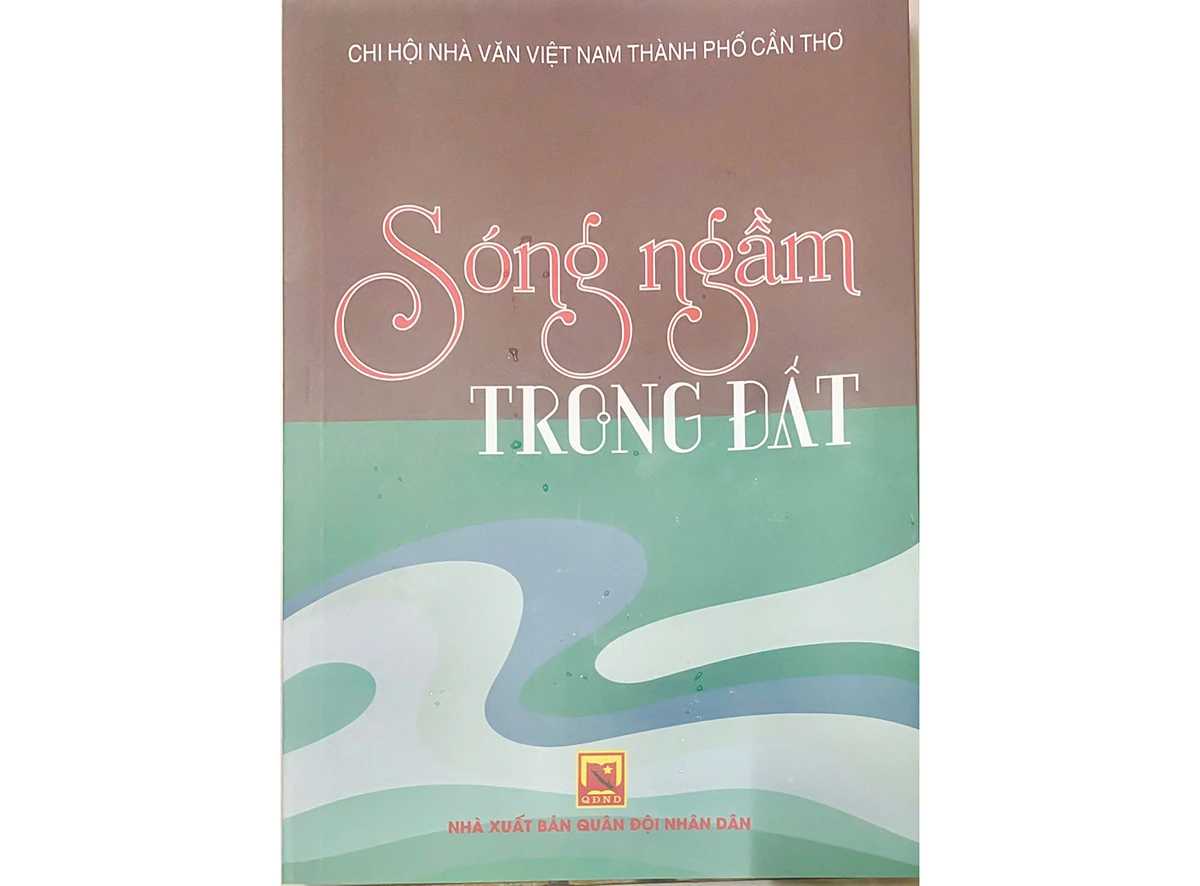The 14 authors in this book were not all born and raised in Can Tho ; many came from other regions to study and work in the Mekong Delta, choosing it as their second home. During that time, these authors researched and wrote, making significant contributions to the literature of Can Tho in particular and the Mekong Delta in general.
In particular, many works by authors born during the resistance war against the US encouraged and motivated the army and people to unite to drive out the invaders and liberate their homeland. For example, the poem "A Journey Along the Line" by poet Le Chi, composed in August 1969 on the historic Route 1C, expresses pride in the lines: "...Going, going day and night without rest / Hearts united in the trenches / With each step on the road to fight the Americans / My soul soars high." Or "The Arc of Fire" (excerpt from the novel "A Story Like a Novel" by writer Nguyen Khai Phong), depicting the fierce atmosphere of war and the courageous fighting spirit of the soldiers during the Tet Offensive of 1968.
This book also contains profound memories, leaving a lasting impression through each work of the succeeding generation who lived in peacetime and joined the military, creating a diverse literary tradition encompassing various genres and perspectives on the armed forces and revolutionary war. It includes the story of a liberation soldier and a female liaison officer who accidentally met on the outskirts of Can Tho, becoming a haunting and unforgettable memory in the short story "A Fleeting Past" by Nguyen Linh. It also portrays the beautiful but incomplete love between a soldier serving in Cambodia and a teacher back home in the short story "The Bittern's Cry in the Evening in an Old Dream" by Cao Thanh Mai. Finally, it expresses the poignant nostalgia of Nguyen Trung Nguyen in "Roll Call of Comrades": "Five vertical rows - the tombstones stand tall / One horizontal row - the white reeds at the edge of the sky / Thirty years! Now we call the roll again / Those who - those who have been far from home!...".
Besides, authors who are dedicated to teaching have fresh perspectives on the fertile land of Tay Do, and the generous, righteous, and open-minded people of the Southwestern region of Vietnam for generations. In the short story "The Lush Green Orchard" by Luong Minh Hinh, there is a renewed mindset of enriching the land and contributing to the development of the homeland. And in "Nostalgia for the Delta," author Truc Linh Lan still remembers: "...Grandfather carried a basket on his back all his life / Parents wandered as poor tenant farmers / Lullabies drifted along with the floodwaters / Rice grains stirred, breaking through their husks to become poetry...". And here are the concluding lines in the poem "The Monkey Bridge in 2000" by Le Dinh Bich, with the belief: "...The Fatherland / Has overcome the difficult years / Oh people! / Take off your clothes and cross the bridge… the sky will turn green again…".
Reading "Undercurrents in the Earth" will evoke feelings of national hero Nguyen Trung Truc's deep love for his mother before his execution, as depicted in Nguyen Ba's epic poem "Nguyen Trung Truc"; the war against French colonialism that tore apart close family members in Ho Kien Giang 's short story "North Wind Across the Fields"; the majestic, rich, yet harsh and dangerous landscape of the forest in Dang Thu Cuu's short story "Black Tiger"; memories of loved ones, of "The Lantern Festival night, the moon flowing over the plains / The entire delta lying tilted, listening to the moon breathe..." by Phan Huy; and the profound research and theoretical basis of Le Xuan's "Further Discussion on the Lingering Element in a Good Poem".
According to the editorial board, choosing the title "Undercurrents in the Earth"—authentic, unembellished glimpses into life in the Mekong Delta by Phat Duong—for this book reflects the older generation's appreciation for the serious creative spirit and passion of the youngest writer, born in 1995, featured in the book. At the same time, they believe in the success of today's and future generations on their challenging literary careers, viewing this as a "bridge" connecting students studying and working in Can Tho to literature, contributing to the future literary legacy of the Mekong Delta.
Kien Giang Lake
Source: https://baocantho.com.vn/dau-an-song-ngam-trong-dat--a191771.html
















































































































Comment (0)